Mental Disability and the Death Penalty
Mental Disability and the Death Penalty
The Shame of the States
Michael L. Perlin
ROWMAN & LITTLEFIELD PUBLISHERS, INC.
Lanham Boulder New York Toronto Plymouth, UK
Published by Rowman & Littlefield Publishers, Inc.
A wholly owned subsidiary of The Rowman & Littlefield Publishing Group, Inc.
4501 Forbes Boulevard, Suite 200, Lanham, Maryland 20706
www.rowman.com
10 Thornbury Road, Plymouth PL6 7PP, United Kingdom
Copyright 2013 by Rowman & Littlefield Publishers, Inc.
All rights reserved . No part of this book may be reproduced in any form or by any electronic or mechanical means, including information storage and retrieval systems, without written permission from the publisher, except by a reviewer who may quote passages in a review.
British Library Cataloguing in Publication Information Available
Library of Congress Cataloging-in-Publication Data
Perlin, Michael L., 1946
Mental disability and the death penalty / Michael L. Perlin.
p. cm.
Includes bibliographical references and index.
ISBN 978-1-4422-0056-2 (cloth : alk. paper) ISBN 978-1-4422-0058-6 (electronic) 1. Capital punishmentUnited States. 2. Mental health lawsUnited States. 3. Mentally ill offendersUnited States. 4. Insanity (Law)United States. 5. Legal assistance to people with mental disabilitiesUnited States. I. Title.
KF9227.C2P47 2013
345.73'0773dc23 2012032790
 The paper used in this publication meets the minimum requirements of American National Standard for Information SciencesPermanence of Paper for Printed Library Materials, ANSI/NISO Z39.48-1992.
The paper used in this publication meets the minimum requirements of American National Standard for Information SciencesPermanence of Paper for Printed Library Materials, ANSI/NISO Z39.48-1992.
Printed in the United States of America
Preface
I started work as a public defender in August 1971. Some four months later, the New Jersey Supreme Court declared the state death penalty statute unconstitutional. In the summer of 1972, in Furman v. Georgia , the United States Supreme Court declared all state death penalty statutes unconstitutional as applied. In the summer of 1974, I became director of the New Jersey Division of Mental Health Advocacy in the newly created state Department of the Public Advocate, and I no longer represented criminal defendants at trial (although I continued to represent patients at the Vroom Building, the state psychiatric hospital for the criminally insane, a cohort that included individuals who had faced the death penalty over the prior half century). In 1982some six years after the Supreme Courts decision in Gregg v. Georgia , declining to find the death penalty unconstitutional in all circumstancesthe death penalty was reinstated in New Jersey, at the time when I was special counsel to the commissioner of the public advocate. In this position, I drafted legislative testimony for the state public advocate in opposition to the death penalty, coauthored a law review article on the need for a proportionality review as an element of any death penalty legislation, and second sat Strickland v. Washington at the US Supreme Court.
I became a law professor at New York Law School in 1984 and soon thereafter created the Federal Litigation Clinic. Although the bulk of our work was civilmostly appeals from administrative decisions involving SSI and SSDI benefitswe also did some appellate amicus curiae work in criminal cases. One of the cases in which we were involved was Ake v. Oklahoma , in which the US Supreme Court ultimately held, in a death penalty case, that an indigent defendant is constitutionally entitled to psychiatric assistance when he makes a preliminary showing that his sanity is [likely] to be a significant factor at trial. Among the classes that I have taught are Criminal Law, Criminal Procedure: Adjudication, and Criminal Law and Procedure: The Mentally Disabled Defendant. I began to write law review articles, treatises, and monographs, and in this literature, death penalty issues were always a major part of my focus, almost always from the perspective of the representation of a defendant with serious mental disabilities. I consulted with legal aid and public defender offices providing legal services to this clientele, and I sometimes served as an expert witnesson Strickland issuesin cases involving defendants with mental disabilities.
In short, although I never represented a defendant at a death penalty trial, death penalty issues have always been part of my professional life. Thus, when I was approached to write this book, I eagerly accepted the invitation since it would give me an opportunity to put together all the thoughts that I had about this issue and to focus on some of the main reasons why the death penalty can never be administered in an equitable and rational way.
The death penalty is used disproportionately in cases of persons with serious mental disabilities, and there are multiple cases in which defendants who are factually innocent have been sentenced to death. Jurors misconstrue evidence introduced ostensibly in mitigation of punishment and instead perversely turn it into aggravating evidence. Invalid and unreliable testimony by alleged experts paints pictures of universal future dangerousness. In spite of decisions ostensibly banning the practice, defendants with mental retardation and serious mental disabilities continue to be executed. The prosecutorial apparat is universally silent and turns its head in the face of gross evidence of prosecutorial misconduct. And there is no contradiction of Stephen Brights aphorism that [t]he death penalty will too often be punishment not for committing the worst crime, but for being assigned the worst lawyer. In too many cases, the lawyers assigned to represent death penalty defendants are, in the immortal words of Judge David Bazelon, walking violations of the Sixth Amendment.
Why is this? I believe that we cannot hope to find the answers until we come to grips with the pernicious power of sanism and pretextuality. I have written frequently about how these factors have contaminated all aspects of the judicial process, and I believe this contamination is nowhere more virulentand, self-evidently, more deadlythan in the death penalty decision-making process. As I said in an article about counsel and the death penalty,
[S]anism in the death penalty decision-making process... is often irrational, rejecting empiricism, science, psychology, and philosophy, and substituting in its place myth, stereotype, bias, and distortion. It resists educational correction, demands punishment regardless of responsibility, and reifies medievalist concepts based on fixed and absolute notions of good and evil and of right and wrong.
But I do not believe that all is hopeless. As I discuss throughout this work, I believe that therapeutic jurisprudence offers the best hope of redemption of all mental disability law, including death penalty law. And I explore that hope throughout this work.
I also call the readers attention to the importance of international human rights law in this enterprise. The United States stands shoulder to shoulder with many authoritarian and repressive nations in its support of the death penalty, a position rejected flatly by international human rights treaties and covenants. Although we have, for the most part, regularly ignored this body of law, the recent ratification of the UN Convention on the Rights of Persons with Disabilities should force us to rethink our position from this fresh and new perspectiveone that promises to infuse a measure of sadly lacking dignity into the entire process.
Much of this book is entirely new, but parts of it draw upon articles and book chapters I have previously published. I have also presented many of the ideas here at conferences over the years sponsored by the American Academy of Psychiatry and Law, the American Psychology-Law Society, the International Academy of Law and Mental Health, the Association of American Law Schools, the American College of Forensic Psychology, the Canadian Psychological Association, the Western Psychological Association, the American College of Forensic Psychiatry, Mt. Sinai Medical School, and the University of Pennsylvania Forensic Psychiatry Workshop Series; at symposia put on by New Mexico Law School, Akron Law School, Stanford University Law School, and the University of Miami Law School; in guest lectures hosted by National Taipei University and the University of Auckland Law School; and at multiple faculty workshops at New York Law School. Most recently, I presented a paperMental Illness, Factual Innocence and the Death Penaltyat National Chingchi Law School in Taipei, Taiwan, and at the Asian Criminological Society annual conference in Seoul, Korea, that became the centerpiece of the second half of chapter 1, and I am especially grateful to have had those opportunities.

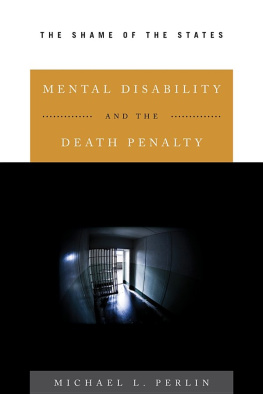



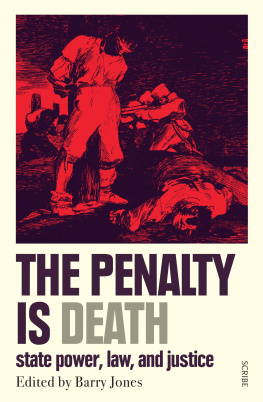
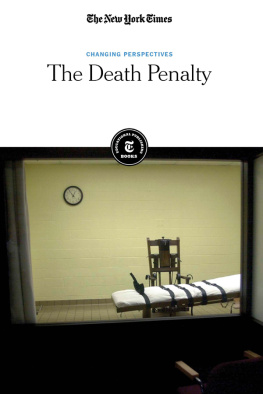
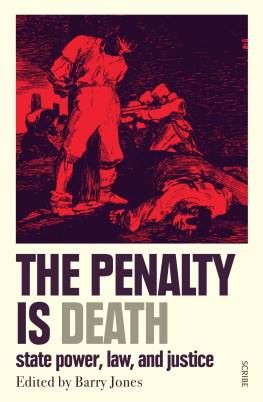

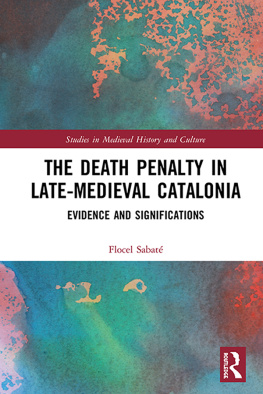
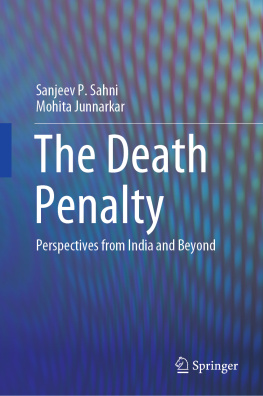
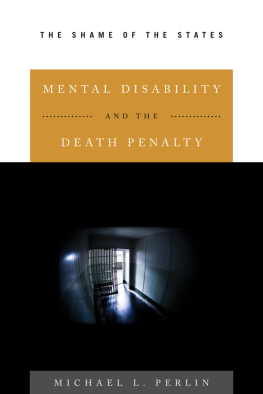
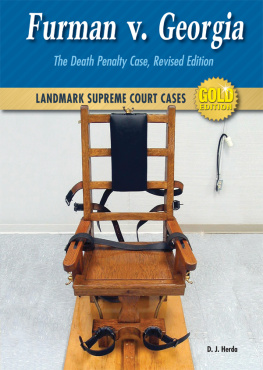
 The paper used in this publication meets the minimum requirements of American National Standard for Information SciencesPermanence of Paper for Printed Library Materials, ANSI/NISO Z39.48-1992.
The paper used in this publication meets the minimum requirements of American National Standard for Information SciencesPermanence of Paper for Printed Library Materials, ANSI/NISO Z39.48-1992.